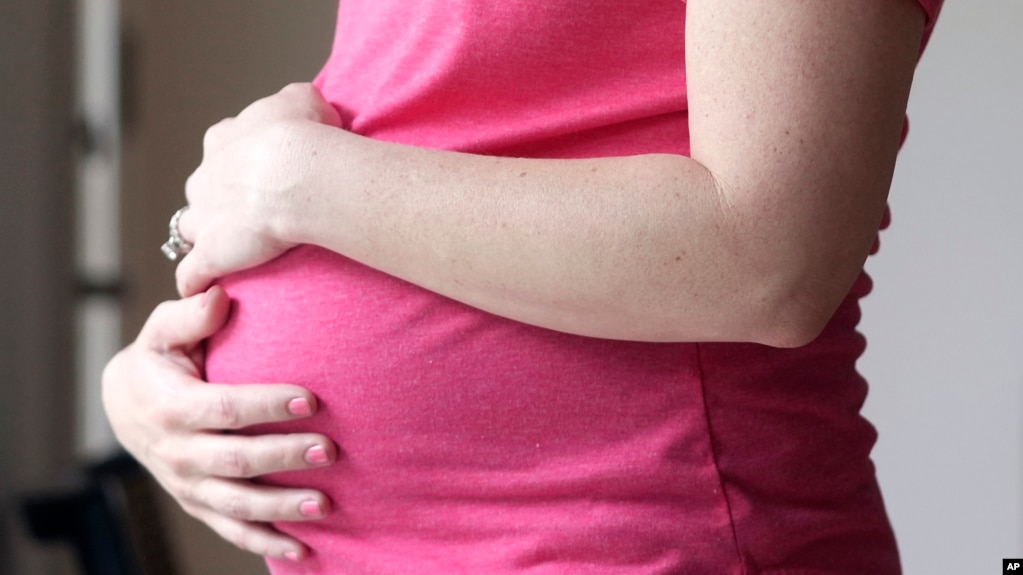AUDIO
Study: Pregnancy Changes the Brain

When a brain scientist at the University of California, Irvine got pregnant at the age of 38, she saw a rare chance. Neuroscientist Liz Chrastil wanted to see how her brain changed while she was pregnant.
Chrastil was among a group of researchers who presented their findings in a new study. It offers the first detailed map of one woman’s brain through the steps of pregnancy, also called gestation.
Researchers say that motherhood affects nearly every part of the brain.
The researchers studied the effects of pregnancy in only one person: Chrastil. But their study has started a large international research project that aims to scan the brains of hundreds of women. The study could one day provide information about disorders like postpartum depression. Postpartum means after birth has taken place.
Chrastil said it has been a very long process. “We did 26 scans before, during and after pregnancy…” She said some of the findings were very noteworthy, or in her words “remarkable.” Chrastil is co-writer of the study that researchers published in Nature Neuroscience in September.
More than 80 percent of the parts of the brain studied had reductions in the amount of gray matter, where thinking takes place. This is an average of about four percent of the brain. This amount is nearly the same as the amount of reduction that happens during puberty. Puberty is the biological changes that cause a person to become a fertile adult.
However, the researchers said the reduction is probably not a bad thing. It might mean that networks of interconnected nerve cells called “neural circuits” are preparing for a new time in a woman's life.
The team began following Chrastil shortly before she became pregnant through in vitro fertilization. During the pregnancy and for two years after she gave birth, they continued doing MRI brain scans and blood tests to see how her brain changed. During this time, Chrastil’s sex hormones, like estrogen, increased and decreased. Some of the changes continued past pregnancy.
Emily Jacobs is with the University of California, Santa Barbara and was also a co-writer of the study. Jacobs said earlier studies had taken scans of the brain before and after pregnancy. But she said, none had shown changes in the brain as they were taking place.
Unlike past studies, this one centered on many inner areas of the brain as well as the cerebral cortex, the outermost area, said Joseph Lonstein. He is a professor of neuroscience and psychology at Michigan State University and was not involved in the research.
Lonstein said it is “a good first step to understanding much more about whole-brain changes that could be possible in a woman across pregnancy and postpartum.”
Research in animals has linked some brain changes with qualities that could help the animal care for an infant. The new study does not deal with what the changes mean in terms of human behavior.
However, Lonstein said that it does describe changes in brain areas involved in social cognition, or thinking. This is how people act with others for example, how they understand their thoughts and feelings.
The researchers have partners in Spain, and they are developing what they call the Maternal Brain Project. The Ann S. Bowers Women’s Brain Health Initiative and the Chan Zuckerberg Initiative support the project. The researchers say they hope scientists can use findings from more than one woman to predict problems such as postpartum depression.
“There is so much about the neurobiology of pregnancy that we don’t understand yet,…” Jacobs said.
She added that this is not because women and pregnancy are too complex. More is not known about pregnancy and the brain, she said, because “biomedical sciences have historically ignored women’s health.”
_____________________________________________
Words in This Story
neuroscientist –n. a person who studies the nervous system including the brain
gestation –n. the period of carry young in the uterus from conception to birth
scan –n. the process of using a device to make an image of the inside the body using sound, x-rays, or other radiation : also a verb
in vitro fertilization –adj. fertilization of an egg in a laboratory dish or test tube specifically : fertilization by mixing sperm with eggs surgically removed from an ovary followed by uterine implantation of one or more of the resulting fertilized eggs —abbreviation IVF
MRI –n. magnetic resonance imaging, also : the procedure in which magnetic resonance imaging is used
hormone –n. a product of living cells that circulates in body fluids (as blood) or sap and produces a specific and often stimulating effect on cells usually at a distance from the place where it is made
maternal –adj. of, relating to, belonging to, or characteristic of a mother
initiative –n. a plan or program intended to solve a problem
cerebral cortex –n. the layer of gray matter that covers the outside of the cerebral hemispheres in the brain and is associated with higher cognitive functions, such as language, learning, perception, and planning.
psychology –n. the science of mind and behavior
https://learningenglish.voanews.com/a/study-pregnancy-changes-the-brain/7806373.html